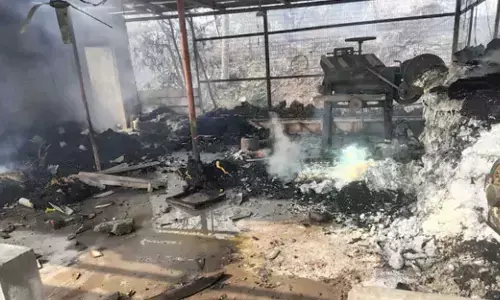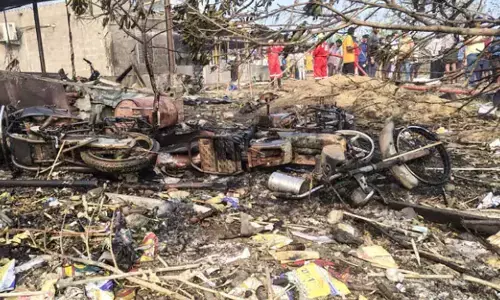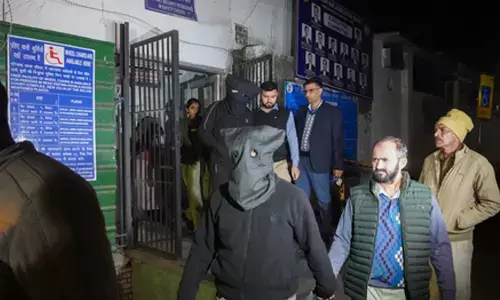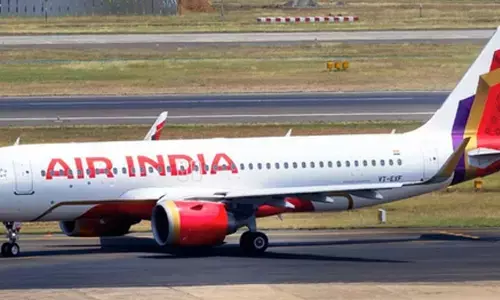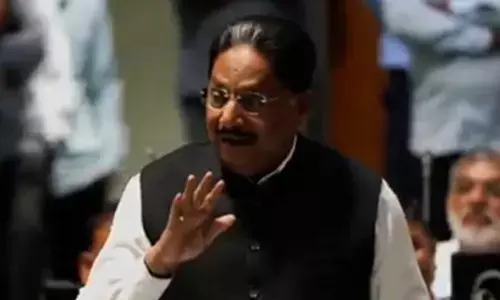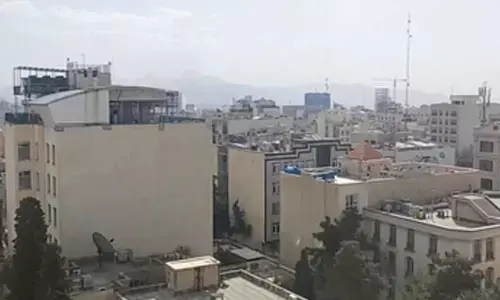African woman tells UN that climate change is security risk
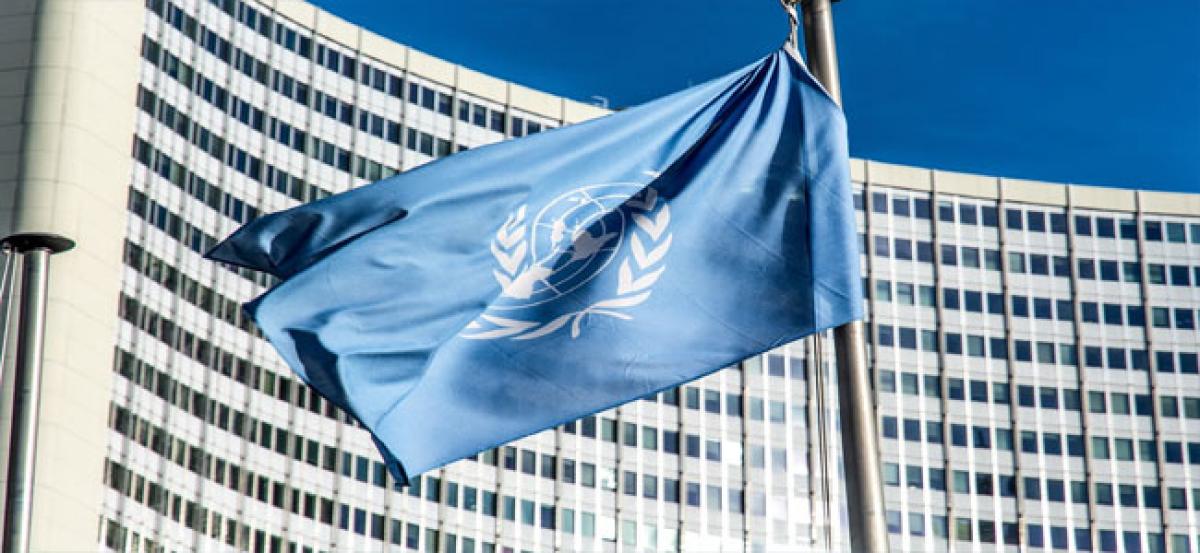
An African woman whose people are nomads constantly searching for food and water has told Security Council members they must consider climate change as a security risk that is fuelling extremism, conflict and migration
An African woman whose people are nomads constantly searching for food and water has told Security Council members they must consider climate change as a security risk that is fuelling extremism, conflict and migration.
Hindou Ibrahim said in a speech to the council on Wednesday that climate change is affecting the daily lives of people in the vast Sahel region who depend on agriculture, fishing and livestock and are struggling to survive.
She said the scarcity of resources has fueled internal migration as well as migration through Africa to Europe, sparked local conflicts that become national and regional, and led to the growth of terrorist groups.
Ibrahim, an activist from Chad who co-chairs the International Indigenous People Forum on Climate, which promotes UN action on climate change, urged the council and the broader international community to take action to help them cope.
"Solutions are there," she said. "Why not give them access to energy? You can help them go to school. You can help them to get health (care). You can help them to do another alternative in their life, and keep them in peace and think about the future." Ibrahim said nomadic pastoralists don't know there is a Security Council where people think about peace around the world but they are living climate change.
It is "deep humiliation" if a man in the nomadic community can't feed his family because "his dignity is not respected," Ibrahim said. To preserve their dignity, the options for nomadic men are grim: Either stay home and join a terror group and fight and die, or leave and risk dying in the sea.
"They do not have any choice, but you you do have one because you choose to sit in the council. You choose to fight for our peace and security around the world," Ibrahim told council members.
"So you must consider climate change as a security risk. You must give them hope the men, women, young people. But you must give them beyond hope because ... they deserve to be alive." The council meeting focusing on "climate-related security risks" was organized by Sweden, which holds the body's rotating presidency this month.
Swedish Foreign Minister Margot Wallstrom, who chaired the meeting and visited the Lake Chad region last week, said she met migrants and refugees displaced by drought and floods whose livelihoods have evaporated, "giving rise to tensions." "It is time for the Security Council to catch up with the changing reality on the ground," she said.
"It's been seven years since we last debated climate and security. It is past time for us to deepen our understanding of how climate change interacts with drivers of conflict." UN Deputy Secretary-General Amina Mohammed, who travelled with Wallstrom, told the council that "while the impact of climate change may be spread unevenly across different regions today, no country will be spared from its consequences in the long-term." Russia's deputy UN ambassador, Dmitry Polyansky, called climate change "a grave threat" but objected to the council taking up the issue. "We are creating an illusion that the Security Council will tackle climate change," he said, when it has no expertise to combat it.
Nauru's president, Baron Waqa, who chairs the Pacific Small Island Developing States, told the council that security risks from climate change have only grown since his predecessor "sounded the alarm" to the council seven years ago. "The council has taken a few tepid steps in the right direction, but it is not enough," he said.
Waqa reiterated the group's call for a UN special representative on climate and security to monitor "potential tipping points," engage in preventive diplomacy, and "support post-conflict situations where climate change is a risk factor." Iraqi Minister of Water Resources Hassan Al-Janabi said declining rainfall and "unsustainable use of water resources" are exacerbating water scarcity, causing displacement "and forced migration." "We are concerned that the major river basins, in Iraq and the rest of the Middle East in particular, are subject to the greatest ever threat, resulting primarily from climate change, as well as competition for use and over-control of shared water resources, that will ultimately result in unsustainable utilization of water," he said.
Al-Janabi warned that the absence of bilateral or multilateral agreements or regional arrangements on sharing water "is contributing to potential conflicts that could be and should be avoided."




